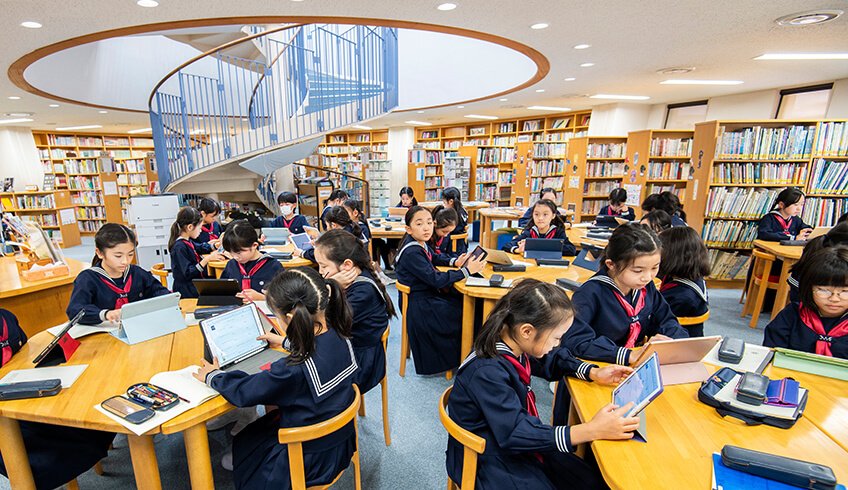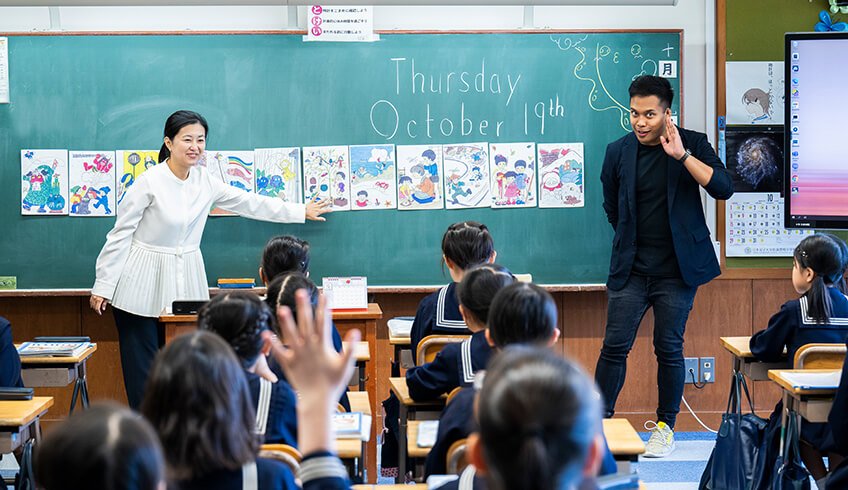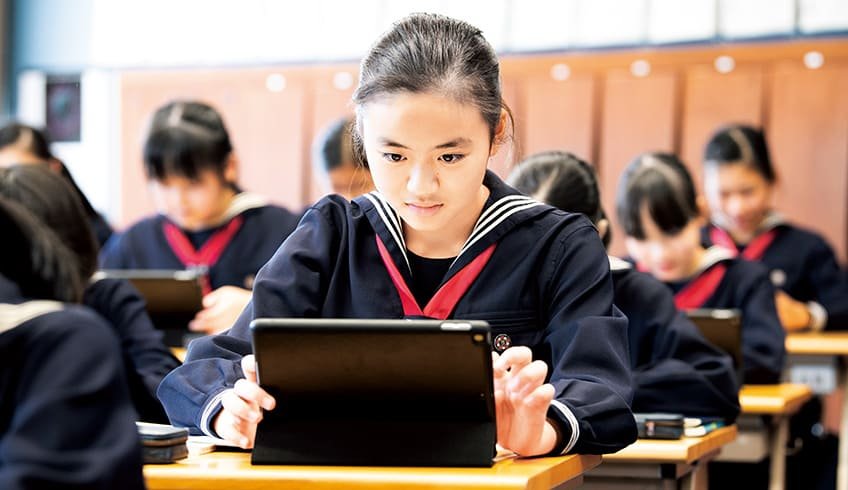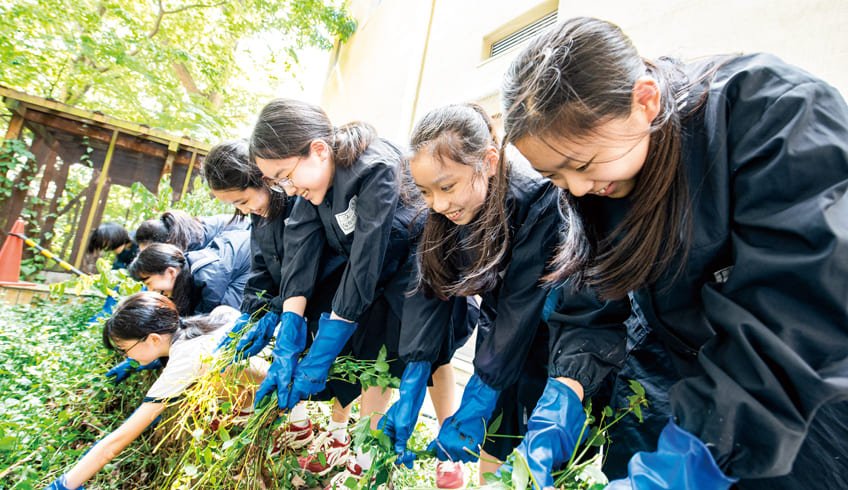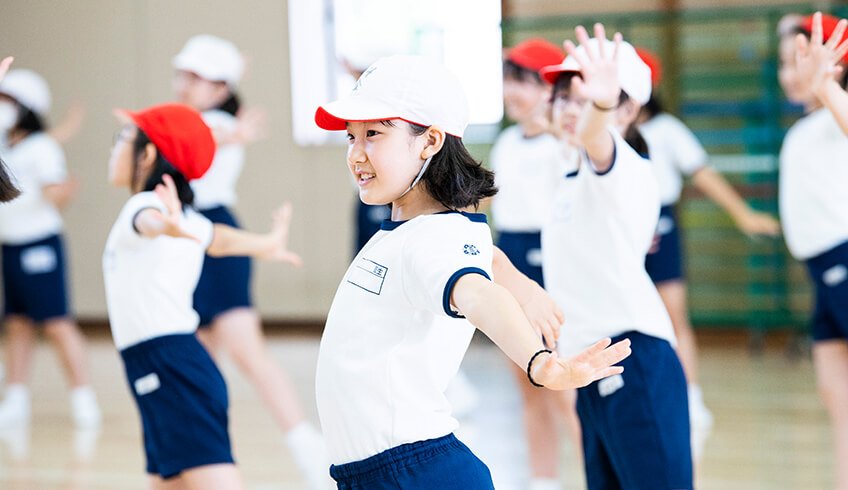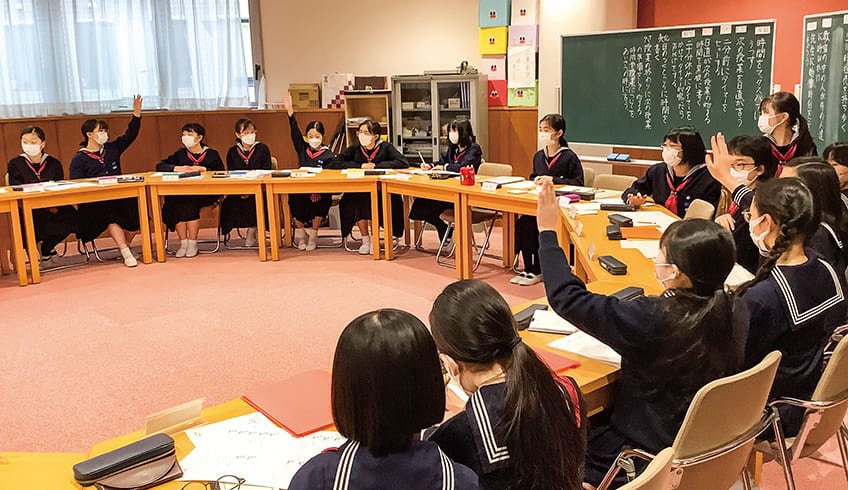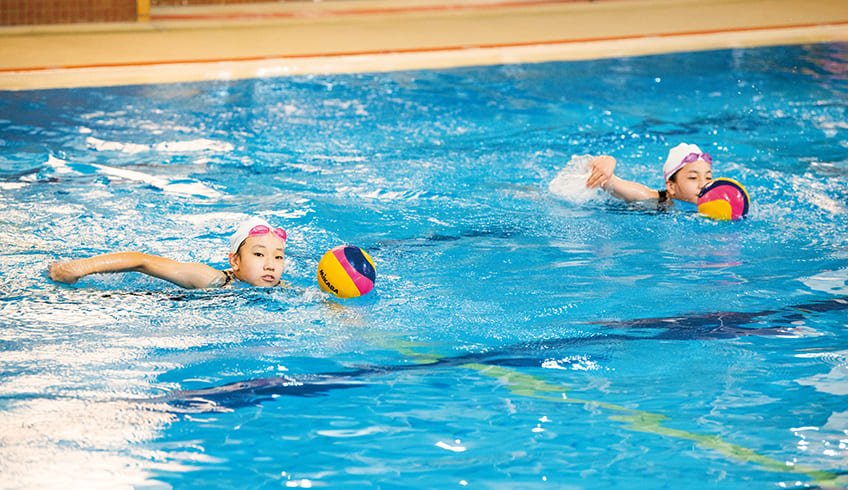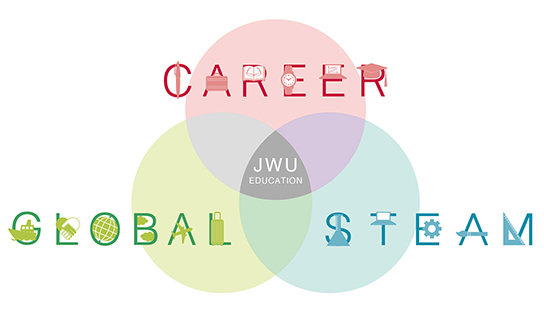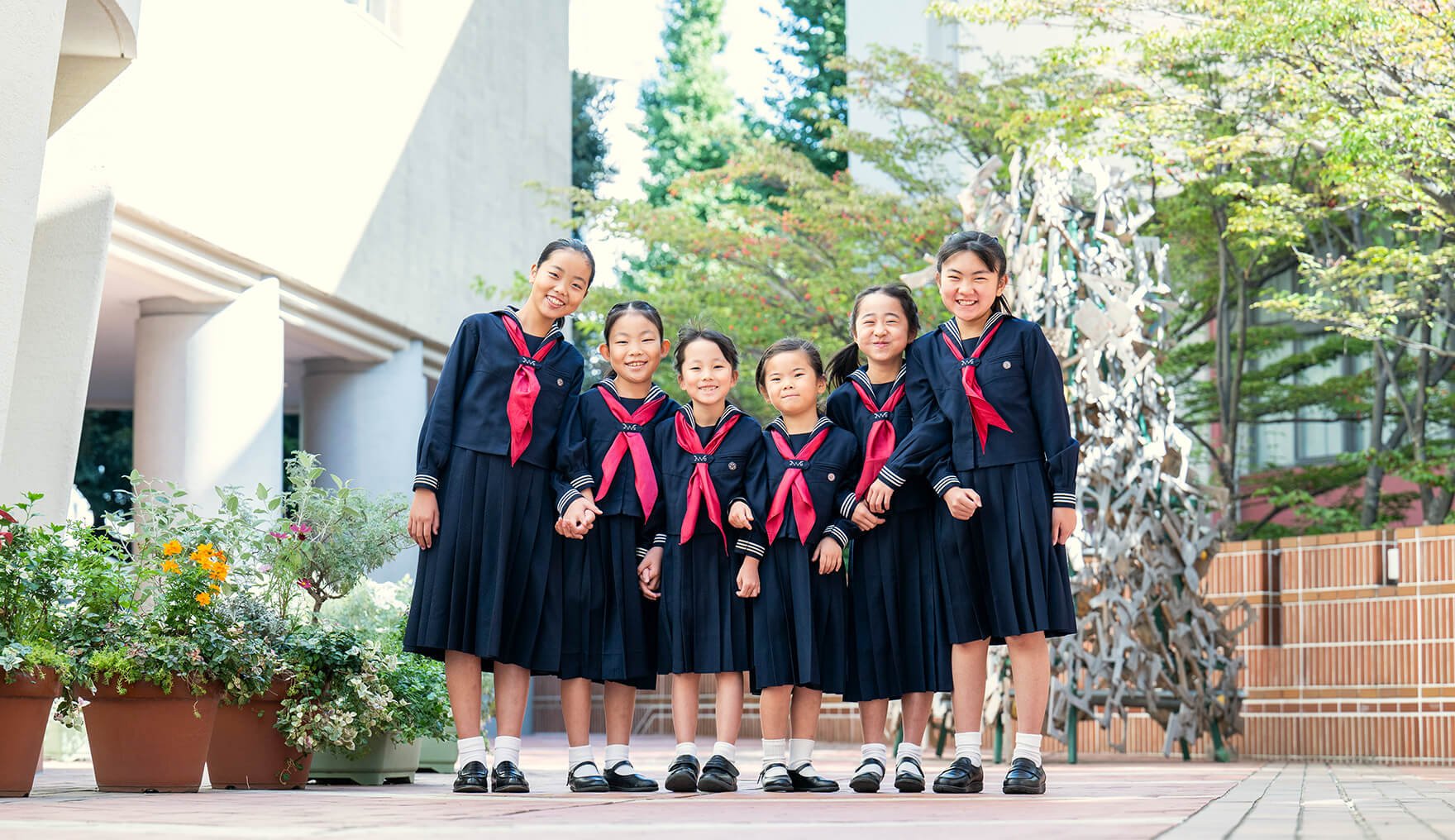
Educational policy
“Self-learning and action”: Learning and acting on one's own initiative
At Homei Elementary School, an emphasis is placed on nurturing children’s abilities to learn and act on their own initiative, to discover and explore new questions by themselves, and to become involved in society as people.
In order to achieve this, it is necessary to nurture children’s “motivation to learn,” and “desire to know more, to be able to do things, and to try things.” Since its founding, Homei Elementary School has provided a rich learning environment that cultivates the seeds of children’s learning and growth by offering a wide variety of experiences.
Education with real objects and experiences which deepen children’s learning
All teachers are committed to direct contact with the “real thing” in their teaching of all subjects. Therefore, nature walks, agricultural experiences and other activities are offered by taking advantage of the Nishi-Ikuta campus.
Even for matters that are difficult to experience directly, efforts are made so that pupils can think about them as “a concrete matter of their own business” rather than “an abstract matter of other people.”
Learning life at school
Guidance in keeping a diary
Pupils keep and submit a diary throughout their six years of elementary school life. They start with a picture diary of small daily events, and as they grow, they write a diary in which they reflect on their own goals and progress. The diary connects the school and home, and teachers carefully follow the children’s inner thoughts, guiding them so that their six years of elementary school life will be a treasure for a lifetime.
Service club activities
Based on the ethos of “Service to Society,” children engage in service club activities aimed at fostering a cooperative attitude toward creating a comfortable life for everyone in an ingenious and spontaneous manner. Pupils in grades 4, 5, and 6 are divided into seven clubs and conduct monthly club meetings and activities as well as daily duty activities with other grades. They learn from the upper grade children’s accurate judgment of situations and language, and from the lower grade children’s obedient and eager attitude.
Classes
STEAM education
ICT devices are used in daily classes to develop children’s “skills,” “morals” and “ethical thinking” in dealing with information. With the “Choose Your Own Device (CYOD) approach a one-device-per-pupil learning environment has been developed to enhance classes from the perspective of “digital citizenship.” Programming is also taught through a systematic curriculum in the “Information” class from the second grade.
Global education
The school cultivates children’s all four English language skills (reading, writing, speaking, and listening) through advanced English education so that they can communicate with the world. Classes taught by native English speakers are offered at all grades, allowing students to experience the joy of communication. The Homei Summer School program in English is also offered upon request.
Career education
With the aim of increasing children’s knowledge and broadening their horizons, the school invites lecturers from various companies and organizations to give lectures and workshops.
School life
A day at Homei Elementary School
Morning classes
Homei Elementary School offers not only classes by classroom teachers but also by many specialized teachers. Pupils are instructed by specialized teachers using a variety of educational facilities and equipment to achieve a deeper understanding of subjects.
Lunch break
Lunch is provided on school lunch days (three days a week) and packed lunch days (two days a week). Some school lunches are select buffet style meals in the multi-purpose hall,which are supervised by a nutritionist from the viewpoint of nutrition education. After lunch is over, children conduct daily cleanup activities.
Afternoon classes
In the afternoon classes, in addition to learning subjects, there are service club and other club activities. As children broaden their perspectives, fulfill their roles and responsibilities and work on their own goals, they reflect upon themselves within a different group than their peers in the classroom.
Annual events
- April: Opening ceremony, admission ceremony, welcome party, founding anniversary ceremony, memorial tree planting, welcome field trip (1st and 6th grades), field trip (1st-5th grades) sketch session (2nd-6th grades), emergency drill
- May: Homeikai general meeting, sketch session exhibition, field trip (Living Environment Studies class), field trip (Science class; 3rd grade)
- June: Field trip (Science class; 4th and 5th grades), field trip (Social Studies class; 3rd and 4th grades), All-school class observation day, anniversary of the birth of Jinzo Naruse, cavity prevention guidance (1st and 4th grades), Sugadaira Schole field trip (5th grade)
- July: Karuizawa summer school (6th grade), term-end school cleanup, term-end assembly, overnight stay experience at the school for emergency preparedness (4th grade)
- August: Summer vacation, overseas experience program (Australia)
- September: Opening ceremony, Sports day, field trip (Science class; 4th grade)
- October: Homei Nakayoshi (Friendship) Day, field trip (Living Environment Studies class; 1st and 2nd grades), field trip (Science class; 3rd and 5th grades), emergency drill, field trip (Social Studies class; 6th grade)
- November: Admission examinations, field trip (Social Studies class; 3rd-5th grades), field trip (living environment studies; 2nd grade)
- December: School trip (6th grade), term-end school cleanup, term-end ceremony
- January: Term-opening assembly, New Year's calligraphy contest (3rd-6th grades), field trip (Science class; 5th grade), New Year's calligraphy exhibition, Jinzo Naruse memorial lecture, concert
- February: Field trip (Living Environment Studies class; 2nd grade), emergency drill, Tokyo Private Elementary School Association children's art exhibition: “Here, I made it!”
- March: Anniversary of Jinzo Naruse’s passing and visit to his grave, farewell party/service club farewell party, graduation week (6th grade), term-end school cleanup, completion ceremony, graduation ceremony
Facilities
Well-equipped exercise and play facilities
The school has adequately sized playgrounds on the roof of the school building and on the school grounds. The second ground allows children to run around even when it rains. The depth of the swimming pool can be adjusted according to class objectives and grade level, so that all children can swim in a safe environment.
A venue for living and learning according to developmental stages
Classrooms for the 1st grade children are designed in such a way that they can feel like their own rooms. As the grade level progresses, the classrooms are designed to facilitate the wider range of activities, including relationships with other grades and ease of engagement activities. The adjacent workspace allows for independent and developmental activities for the children.
Spaces that enable education with real objects and foster a rich spirit
Each special classroom and multi-purpose hall has ample space and facilities for learning through play, hands-on experience, and real objects, as well as for nurturing a well-rounded character.
Facilities to foster the spirit of self-governance
There is a children’s meeting room where the desks are arranged in a circle, allowing children to see each other's faces and engage in discussion.


